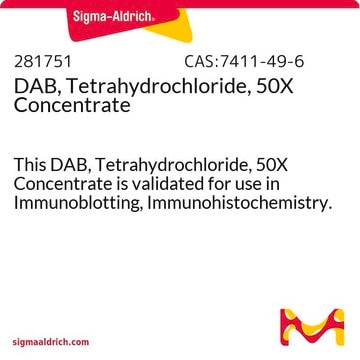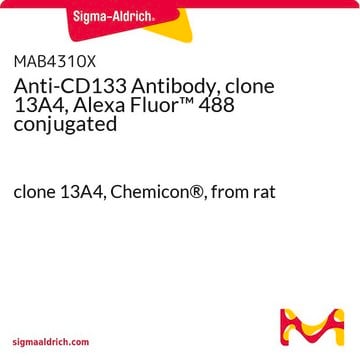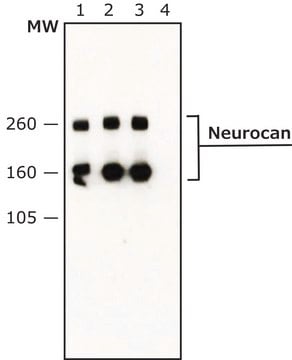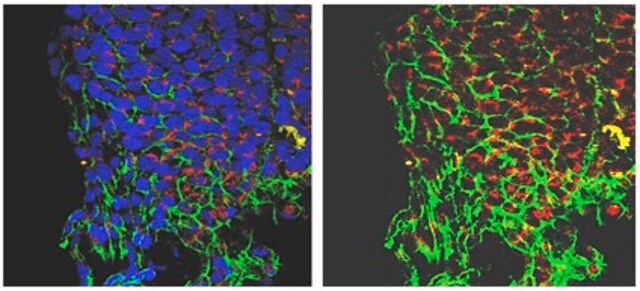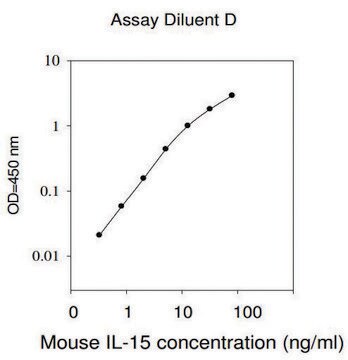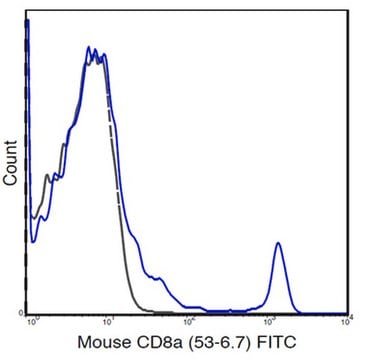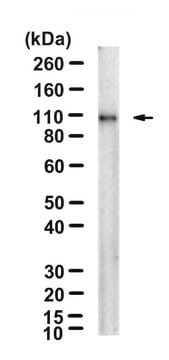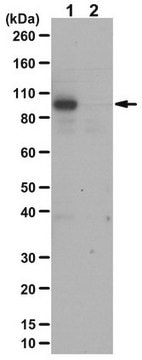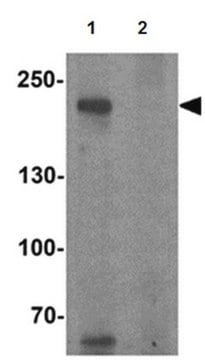ABT1384
Anti-Neurocan Antibody, N-terminal
from rabbit
Synonym(s):
Neurocan core protein, 245 kDa early postnatal core glycoprotein, Chondroitin sulfate proteoglycan 3
About This Item
Recommended Products
biological source
rabbit
Quality Level
antibody form
unpurified
antibody product type
primary antibodies
clone
polyclonal
species reactivity
mouse, rat
packaging
antibody small pack of 25 μL
technique(s)
immunofluorescence: suitable
immunohistochemistry: suitable
radioimmunoassay: suitable
isotype
IgG
NCBI accession no.
UniProt accession no.
shipped in
ambient
target post-translational modification
unmodified
Gene Information
rat ... Ncan(58982)
General description
Immunogen
Application
Immunohistochemistry Analysis: A representative lot detected Neurocan in E13 and E14 mouse ventral diencephalon and retina in C57 mouse embryos (Leung, K.M., et. al. (2004). Brain Res Dev Brain Res. 152(1):1-10).
Quality
Immunofluorescence Analysis: A 1:500 dilution of this antibody detected Neurocan in E14 Embryonic rat brain (frozen section), rat E14 neocortex, and rat hippocampus cells.
Target description
Physical form
Other Notes
Not finding the right product?
Try our Product Selector Tool.
Storage Class Code
12 - Non Combustible Liquids
WGK
WGK 1
Regulatory Listings
Regulatory Listings are mainly provided for chemical products. Only limited information can be provided here for non-chemical products. No entry means none of the components are listed. It is the user’s obligation to ensure the safe and legal use of the product.
JAN Code
ABT1384:
ABT1384-25UL:
Certificates of Analysis (COA)
Search for Certificates of Analysis (COA) by entering the products Lot/Batch Number. Lot and Batch Numbers can be found on a product’s label following the words ‘Lot’ or ‘Batch’.
Already Own This Product?
Find documentation for the products that you have recently purchased in the Document Library.
Our team of scientists has experience in all areas of research including Life Science, Material Science, Chemical Synthesis, Chromatography, Analytical and many others.
Contact Technical Service